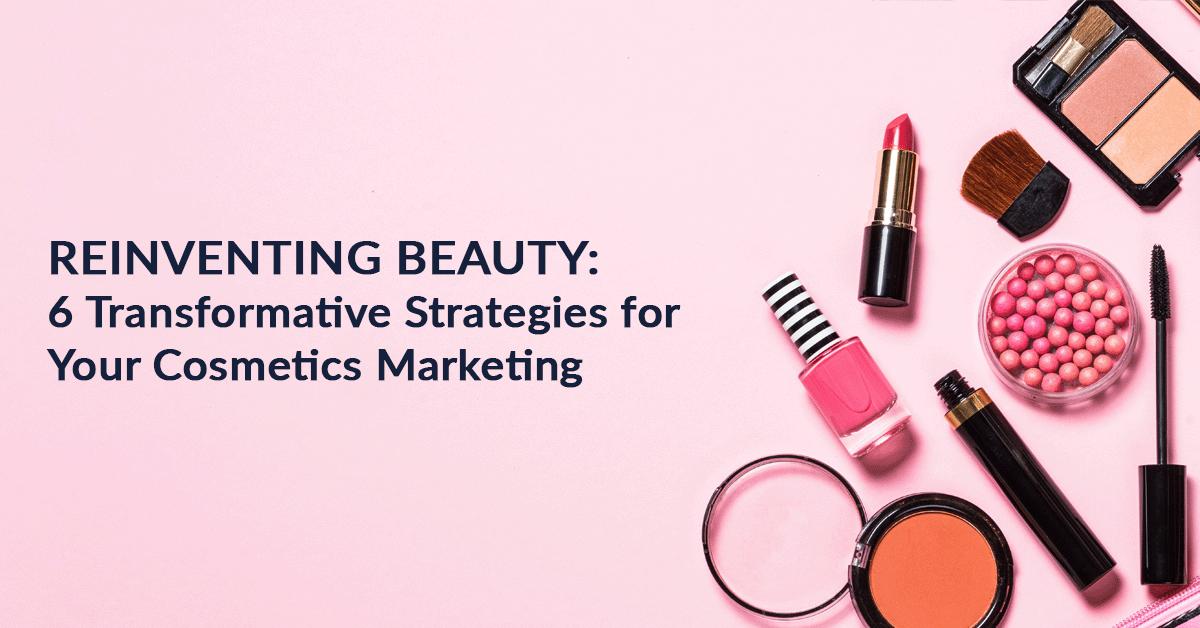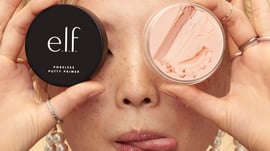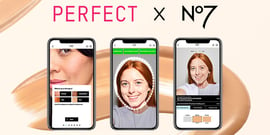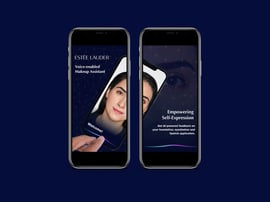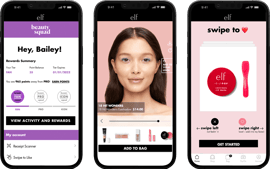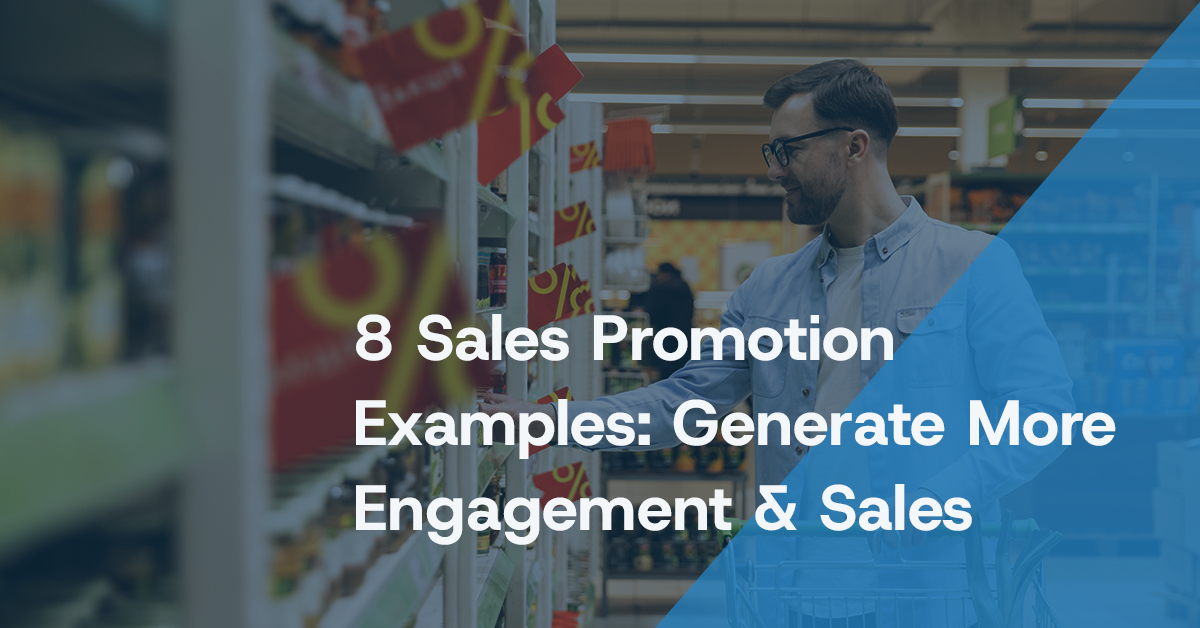Welcome to the new era of beauty, where lipstick meets lotion, and mascara mingles with moisturizer! In the vibrant post-pandemic world, the cosmetics industry is experiencing a significant 'glow-up' with several key trends emerging. Influenced by the minimalist beauty habits of the past few years and a growing emphasis on ingredient-driven wellness, we're experiencing the ascent of 'skinification' as a dominant trend in the industry. In this space, the line between makeup and skincare blurs, making makeup a seamless extension of our skincare routines.
As part of this holistic approach to beauty, consumers are focusing on what's in their products (and more importantly, what's not). This trend also dovetails with the ‘clean beauty’ revolution, which advocates for paraben-free and cruelty-free products, and highlights that cosmetics shoppers are no longer satisfied with just looking good -- they also want to feel good about the choices they make for themselves and the planet. In response, the cosmetics industry is making conscientious strides towards eco-friendly practices, from adopting sustainable ingredients to promoting plastic-free packaging.
Rounding out the trends we’re seeing is the shift from mass-market, one-size-fits-all products towards ever more personalization. Today's shopper craves a unique experience, looking for products that cater to their individual needs. Brands are now harnessing the power of data science and AI to deliver custom-blended cosmetic formulas, allowing consumers to become their own beauty mixologists! Within this evolving landscape, indie brands are rising to the occasion, disrupting the market with their inventive offerings and catering to the idea of makeup as a form of self-expression and as a gateway to socially connect with other beauty enthusiasts. For industry players aiming to thrive in this new beauty paradigm where wellness, sustainability, personalization, and innovation are the norm, we're sharing six key cosmetics and beauty marketing strategies to 'conceal' your competition! Read our full Cosmetics Industry Trends Guide here after you digest the strategies below!
6 Transformative Cosmetics and Beauty Industry Marketing Strategies
1. Get Social with Influencers
The intersection of cosmetics and social media is creating a dynamic marketplace that's reshaping the industry, one influencer plug at a time. Platforms like TikTok have become the epicenter of beauty buzz, with influencers and their '#tiktokmademebuyit' recommendations driving impressive sales, often through socially shoppable posts. 89% of TikTok users admit to buying beauty products they've discovered on the app, and Brands are seizing this momentum by partnering with influencers to increase their visibility and engagement. The rise of live commerce, fuelled by the pandemic, has added another dimension to the social shopping experience. Livestreams showcasing before-and-after makeovers using trending beauty products have become a major draw, enticing viewers to buy in real-time. This trend is particularly popular in China, where influencers like Austin Li and Viya have leveraged it to sell an eye-popping $3.1 billion worth of products in just one night during a shopping festival!
Gen Z-focused brand E.l.f. cleverly played on its acronym to launch the #eyeslipsface challenge on TikTok. Users could groove to an original tune and post their dance videos under the hashtag for a shot at winning $250 worth of E.l.f. goodies. This cosmetics social media campaign, boosted by celebrity and influencer participation, was a hit, racking up a staggering 9.7 billion views.
2. ‘Augment’ Digital Offerings for Personalized Experiences
Beauty brands are increasingly turning to AI and immersive technologies such as Augmented Reality/Virtual Reality to provide personalized experiences and boost customer engagement. Amidst pandemic-induced store closures, digital tools that allowed consumers to 'virtually try on' cosmetics gained popularity, helping boost sales, and a growing cohort of consumers are expressing interest in using apps for personalized makeup tips -- driven largely by Gen Z's enthusiasm for tailored, AI-based recommendations.
Beauty brands are increasingly turning to AI and immersive technologies such as Augmented Reality/Virtual Reality to provide personalized experiences and boost customer engagement. Amidst pandemic-induced store closures, digital tools that allowed consumers to 'virtually try on' cosmetics gained popularity, helping boost sales, and a growing cohort of consumers are expressing interest in using apps for personalized makeup tips -- driven largely by Gen Z's enthusiasm for tailored, AI-based recommendations.
3. Build Transparency into Processes
Today's cosmetics shoppers are ingredient-conscious rather than brand-driven, craving in-depth knowledge about the products they buy, from the health benefits of the ingredients to their sourcing ethics. In a revealing trend, 81% of beauty product searches on Amazon are unbranded, indicating shoppers prioritize attributes and ingredients over brand names – a clear testament to the rising importance of transparency in beauty marketing. As consumers grow more discerning, brands that bare their ingredient lists are winning favor.
Sweden's Skinfo is giving power back to consumers with their innovative ingredient transparency widgets for beauty products. These intuitive tools, available on e-commerce platforms, provide crystal-clear insights into every ingredient - from their function and skin effects to potential allergens, vitamin content, botanical names, and origins.
4. Venture into the Metaverse
The potential of virtual spaces to enhance consumer experiences and sell products as part of a beauty marketing strategy is huge. With 60% of Millennials open to making purchases in virtual worlds, major beauty brands like E.l.f. Cosmetics, Estée Lauder and L’Oréal have turned to the metaverse as a method to reach younger shoppers. Brands can also employ Web3 features such as non-fungible tokens (NFTs) to offer exclusive experiences to their customers. Issuing an NFT can, for example, help a small company kickstart a community, and for a larger brand, an NFT could replace a membership card.
Fenty Beauty is shaking things up on metaverse platform Roblox, with a four-week experience that puts users in the designer's seat. Players can visit the Fenty Beauty Lab to create their custom version of Fenty’s Universal Lip Luminizer, choosing everything from ingredients to the applicator and shade name. Users' favorite creations will go to a vote, and one lucky winner chosen by Rihanna herself will see their creation produced and available for purchase in 2024 on Fenty Beauty and Sephora's websites!
5. Champion Diversity and Inclusion
Brands are responding to societal demands for transparency, diversity, and inclusion across all their operations, not just in marketing, with a significant portion of consumers willing to pay more for brands demonstrating these qualities and broader ethical standards. THG Ingenuity indicates that 41% of UK consumers appreciate beauty brands committed to ethical practices, with 36% prepared to shell out more for brands that respect human rights. And, in line with Gen Z's dismissal of '2D identity', forward-minded cosmetics brands are crafting neurodivergent-conscious products and experiences for increased accessibility of their products.
Estée Lauder’s AI-driven Voice-Enabled Makeup Assistant (VMA) empowers visually impaired users to apply makeup with confidence. This cutting-edge app leverages AI and voice tech for real-time, personalized feedback on every step of makeup application. It's a testament to Estée Lauder's dedication to inclusivity, aligning with other accessibility-focused innovations like L'Oréal's HAPTA for those with limited hand and arm mobility.
6. Nurture Loyalty Via Deals and Promotions
As inflation rates rise and prices in the cosmetics industry increase, consumers are tightening their purse strings, which may lead to reductions in non-essential spending such as color cosmetics. The US saw an inflation rate of 6% in 2023, with color cosmetics and nail products experiencing an average price hike of 19% year-over-year. Both department stores and mass channels have witnessed a 20% surge in beauty sector pricing. This is not just a US phenomenon; with mounting economic pressures in Europe, 76% of UK female consumers are price-comparing when buying makeup. Brands can cultivate loyalty and attract a broader consumer base by offering promotions, discounts, GWP marketing, and gamified deals. Also, loyalty programs that use first-hand consumer behavioral data to devise insight-driven promotional strategies are gaining relevance as cookies become obsolete.
E.l.f Cosmetics' loyalty program, Beauty Squad, is a game-changer with over three million members and impressive double-digit retention rates. It's not just about rewards - it's about understanding their youthful customers. Skincare quizzes collect personal data to customize each user’s experience, while their mobile app, featuring a virtual makeup tool and shoppable stories, brings convenience to their fingertips. No wonder 95% of Beauty Squad members favor the app over web shopping!
Cosmetics and Beauty Marketing goes deeper than surface level
To sum it all up, today's consumers aren't merely seeking cosmetics; they're craving ethical, sustainable solutions that enhance their skincare routine and simplify their lives. Despite economic challenges, they're ready to invest in products that align with their beliefs. This shift paves the way for brands to effectively connect with these modern beauty buyers in their cosmetic and beauty marketing. To win in this landscape, brands must match their growing demands for transparency, open sourcing, and inclusivity. Also, with price-consciousness on the rise, marketers should employ data-driven promotional strategies to provide the right 'foundation' for every purchase!
Read our full Cosmetics Industry Trends Guide here!
References
- https://www.marketingdive.com/news/elf-cosmetics-mobile-marketing-tiktok/636173/
- https://www.marketingdive.com/news/fenty-beauty-roblox-metaverse-experience-custom-gloss-bomb-lip-luminizer/654303/
- https://www.gcimagazine.com/brands-products/news/news/22644450/the-este-lauder-companies-aipowered-beauty-app-caters-to-visually-impaired-users
- https://scandinavianmind.com/news/skinfo-scientifically-explains-30-000-skincare-ingredients-in-one-app
- https://theindustry.beauty/the-role-of-ai-and-ar-in-the-beauty-industry/


